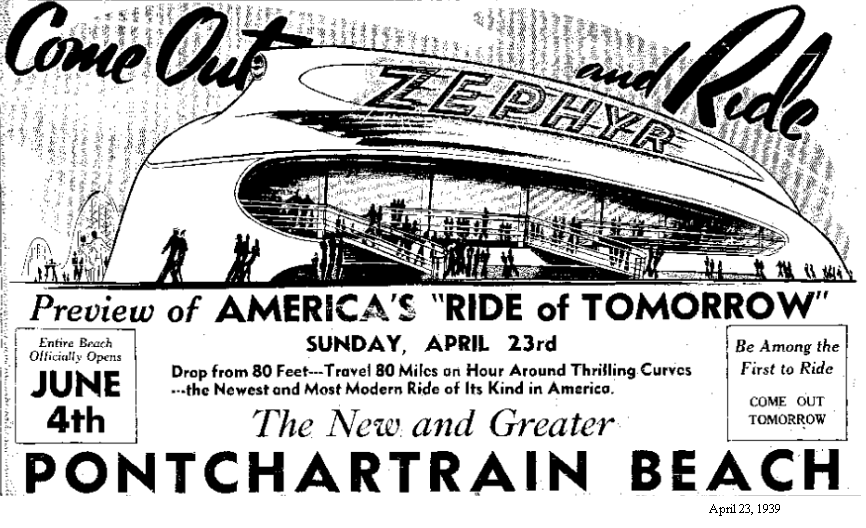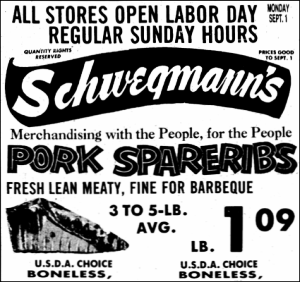|
Today in New Orleans History |
|
|
February 15


 This invention relates to landing boats
of particular military signicance for transporting trucks, tanks, field pieces, and other equipment to a beach, and landing
them on the beach without the benefit of wharves or docks. The general object of the invention
is to provide a landing boat having, insofar as they can be retained, the hull-shape'characteristics of my Eureka hull covered
by my Patent No. 2,144,111,- granted January 17, 1939, which provides a stable, shallow draft speedy boat with wide transverse
bow capable of being driven far up on a shelving beach and retracted from the beach under its own power. Another object of the invention is to provide a landing boat sized to transport a single
piece of heavy mechanized equipment together with its manning crew, enabling thc equipment to be unloaded in the shortest
possible time upon the beach, and permitting the men to land dry-shod on the shore. A further object of the invention is to provide a landing boat with wide transverse bow, wherein the
bow is hinged transversely substantially at the plane of the floor, and which may be let down on the shore forming a ramp
down which the equipment may roll under its own power or otherwise, and serving as agang-plank for the landing of the men.
Higgin's boats, built by New Orleanians and used during World War II, and particularly in the
D-Day Invasion of Normandy, prompted Dwight D. Eisenhower to say, "Andrew Higgins...is
the man who won the war for us...If Higgins had not designed and built those LCVPs, we never could have landed over an open
beach. The whole strategy of the war would have been different." Hitler called Higgins "the "New Noah".
The inventor and holder of some 30 patents pertinent to amphibious landing craft and vehicles, Andrew
J. Higgins died in New Orleans on August 1, 1952, and was buried in Metairie Cemetery.  

To receive an update for each day in New Orleans
history, join our facebook page
- Today in New Orleans History
Carnival Day was celebrated on February 15, 1972, 1983, and 1994.
|
|
|

To receive an update for each day in New Orleans history,
join our facebook page - Today in New
Orleans History.
Analytics |


